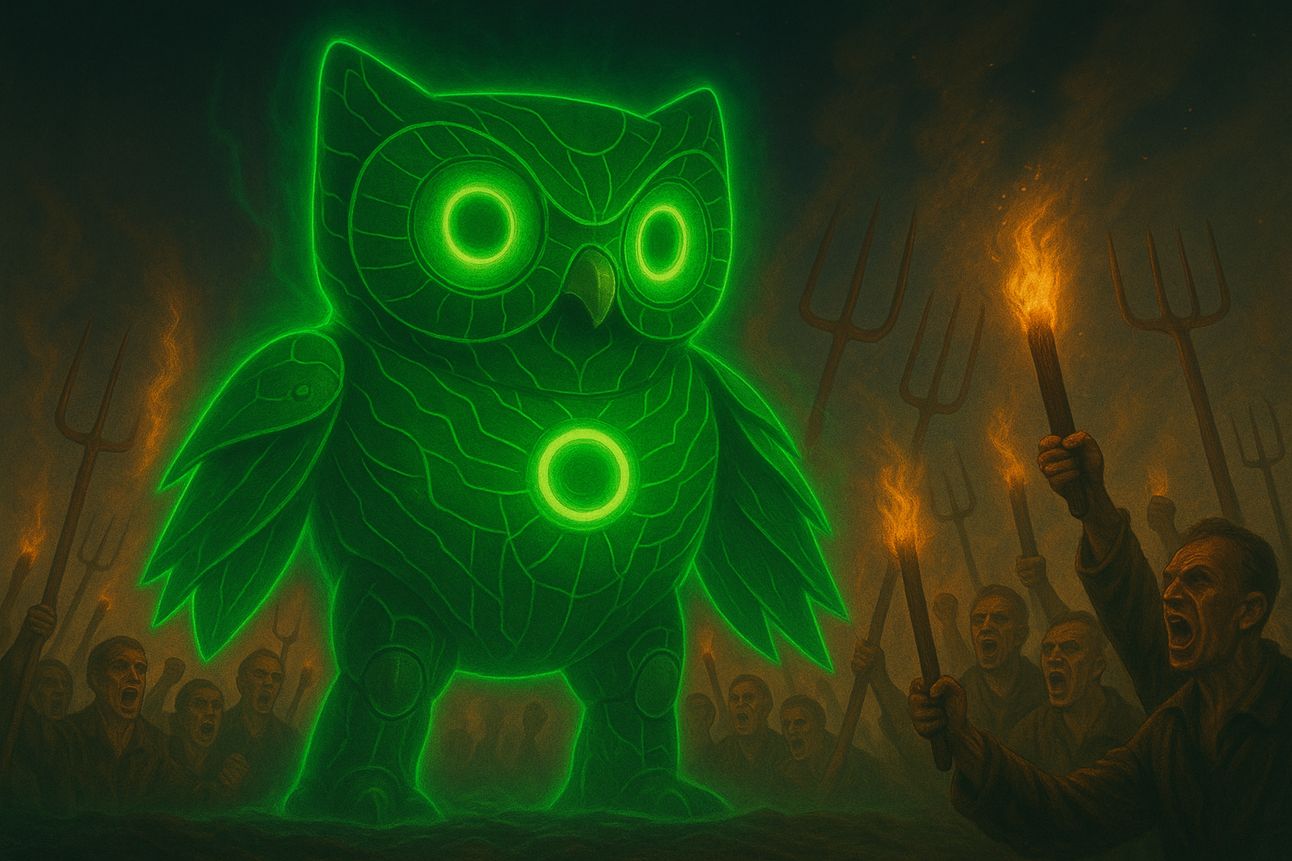Boy, consumers are having some intense emotional reactions to AI right now. If someone even gets a whiff that ChatGPT or computers might replace real people’s work, the online hordes start screaming “DEY TERK OUR JERBS!!!”
I personally think it’s dumb, but it also highlights why we need to pick & choose how we market AI, and when we market AI.
And like seemingly half of all social media marketing stories, it starts with Duolingo.
Duolingo’s “AI-First” Backlash
An all-staff email went out to the Duo team announcing they’re going to become an “AI-first company” moving forward, which they also shared on the company’s LinkedIn.
Sounds pretty smart to me! I’m astounded at how AI’s exponentially improving operational and creative efficiencies, and honestly think most content-based companies should be rethinking how they work to get the most out of AI.
Duolingo proved the thinking’s value almost immediately, releasing 150 new language courses a week later that were fully developed by AI. Their CEO even noted that it took 12 years to launch their first 100 courses, and just one year to launch these new 150 courses. That’s pretty astounding.
But back to that email. Even thought the businessman in me agrees with pretty much the entirety of the note, one little bullet point brought out the pitchforks: “we’ll gradually stop using contractors to do work that AI can handle.”
Yeah, people didn’t like that part. A brand that normally gets universal praise in their comments caught a lot of flak & accusations of hurting the working-class to save a buck.
This is where it’s important to recognize when AI is an incredible business tool, but not a marketable message for your consumers.
Why AI shouldn’t always be a marketing message
The entirety of your company’s marketing strategy should be built around sharing to your intended consumers why your product’s going to emotionally improve their lives.
People pay for Duolingo to learn a new language. Maybe it’s to expand their horizons, or speak with relatives, or get native for a vacation! That’s what consumers look for.
Duolingo announcing that they’ve added 150 new language courses? That’s great!
But there was no reason for that green bird to share that AI made it possible.
No consumer would’ve cared or even realized those new courses were AI-creations if the green bird hadn’t told them. If they’re good courses, they’re good courses! No one cares about the genesis if they’re satisfied with the product.
But doubling down on AI in their messaging after the backlash is an odd choice. There’s just no reason for it. Just serve the dish, don’t take them in the kitchen.
When AI should be in the marketing message
A lottt of companies are adding AI integrations to their products. Hell, when I picked up my Just Salad order the other day, they were advertising their, I kid you not, “Salad AI” recipe generator.
So when should you add AI messaging to your marketing language?
When the addition of AI provides a clear benefit to your customer, in a way that has no potential harm on people or jobs. It’s that simple.
Also, TikTok comments don’t matter and this will have no effect on Duolingo
Now, all these angry consumers? All the angry TikTok comments? Genuinely, who cares.
If there's one thing I'm more sure of than ever, it's that these moments blow over insanely fast, and Duolingo is both a beloved product for its effectiveness and a beloved brand for all the marketing they've done over the years.
People will forget about this instantly, and we as marketers and social pros need to be more honest about how these moments rarely hurt brands at all. A week or two of negative sentiment isn’t worth crying over.

